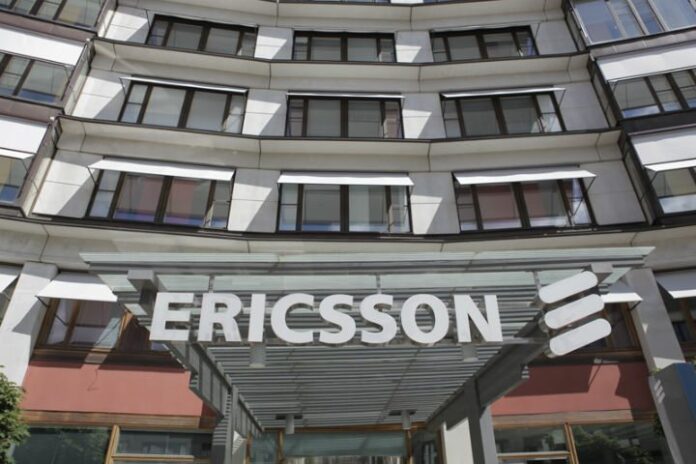Software is becoming an increasingly important part of telecommunication networks and deployments as both wired and wireless carriers look to add functionality to operations while increasing simplicity and reducing costs. RCR Wireless News is keeping an eye on recent developments through its weekly “Software” wrap up.
Ericsson’s Research division released its Bowser Web browser (get it?) and underlying framework OpenWebRTC as free and open source software with the intent to hasten innovation in the WebRTC community.
WebRTC is set up to allow for real-time voice, video and data applications to run in a Web browser environment. The technology uses APIs and protocols that are being standardized within the World Wide Web Consortium and Internet Engineering Task Force.
Ericsson Research said the move to release its OpenWebRTC software should cater to mobile platforms where native application distribution is “often preferred over pure webapps.” The Bowser browser has also been submitted to Apple for inclusion in its App Store and will be available as a free download.
“The WebRTC standard is still evolving and developers are finding new ways of using the technology every day,” explained Stefan Ålund, research manager at Ericsson Research. “Our engineers have built OpenWebRTC in a way that makes it super-simple to modify and extend, leaving room for even more experimentation with API’s and new features.”
—Canadian mobile operator Mobilicity signed a deal to use Reverb Network’s Self-Optimizing Network system in five cities. The markets include Toronto, Ottawa, Calgary, Edmonton and Vancouver.
The technology has already been “evaluated” on Mobilicity’s live network, and is expected to help the carrier improve operational efficiencies as it continues to attract customers to its flat-rate, unlimited service offering. Financial details of the deal were not released.
Mobilicity, which is controlled by Data & Audio-Visual Enterprise Holdings, is in the process of being acquired by nationwide operator Telus for $350 million. Reverb Networks reported earlier this year that its InteliSON platform had been installed by a “North American tier-one mobile operator.”
Reverb also reported that it had entered into a partnership with Netherlands-based Tulinx to supply and support optimization solutions to enhance SON systems to mobile operators.
“Our strategy has been to partner with companies offering very high quality automatic optimization expertise, in order to ensure they can assist customers as they transition into SON, and Tulinx is an excellent example of a network optimization specialist,” explained Reverb Networks CEO Zoran Kehler.
A report released late last year by Infonetics Research found that 87% of mobile operators surveyed had deployed SON in their networks, an increase from just 27% at the end of 2012. The survey added that by 2015, 100% of those operators surveyed planned to use SON in their network.
“Mobile operators know they need to keep network operating expenses under control, and they’re placing a big bet on SON while acknowledging the complexity of and their unease with automation that minimizes human intervention and maximizes computerization,” explained Stéphane Téral, principal analyst for mobile infrastructure and carrier economics at Infonetics. “Nonetheless, the ultimate goal is to use cell planning and field testing for zero-touch, self-healing networks. But, it’ll take some time to get there. SON’s just started, after all.”
—NetCracker Technology reported a multi-year, hosted managed services agreement with Clarity Telecom covering order entry, provisioning, billing and revenue management. The deal is expected to allow cable-provider Clarity to support its triple-play services as it “rapidly expands with aggressive merger and acquisition activity.”
—Oracle earlier this week used the spotlight of its OpenWorld conference to launch a flurry of new offerings, many of which focus on incorporating mobile and big data analytics for application development.
—Rural mobile operators Nex-Tech Wireless and United Wireless used a combination of the Competitive Carriers Association’s Data Services Hub and TNS to offer LTE roaming services between the two operators.
The Kansas-based telecom operators will use the CCA hub, which was launched last year in partnership with TNS, along with TNS’ IPX services to enable roaming for their respective customers, as well as to leverage the roaming hub to establish “favorable agreements with both inbound and outbound LTE roaming with strategic wireless partners.” The operators currently provide mobile services across most of Kansas and portions of Colorado.
Nex-Tech Wireless earlier this year signed a roaming agreement with Sprint to access that carrier’s nationwide LTE network.
Make sure to check out the latest in telecom-related software news at RCR Wireless News’ dedicated software page. Also, if you have telecom software news to share, please send it along to: dmeyer@rcrwireless.com.
Bored? Why not follow me on Twitter?

